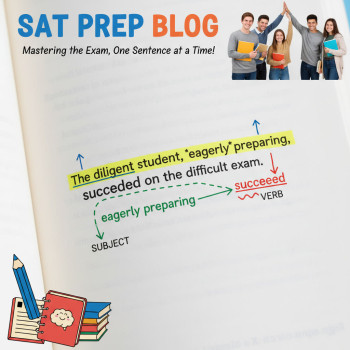Understanding UGA and the Role of the SAT
If you’re aiming for the University of Georgia (UGA), you’ve probably already heard conflicting advice about standardized tests: are they required, optional, or somewhere in between? The short, practical answer for students preparing strong applications to UGA is: treat the SAT as an important piece of your application unless you have a very clear reason not to. UGA admissions consider multiple factors, and SAT scores can meaningfully support your academic profile, scholarship eligibility, and placement plans.

What UGA Typically Looks for: Score Ranges and Context
UGA admits students with a range of SAT scores, but most admitted students sit between solidly competitive marks. Think of the SAT as a signal to admissions officers: it helps them see how your skills line up with their classroom expectations. While many factors matter (GPA, rigor of coursework, extracurriculars, essays, recommendations), SAT scores give a standardized snapshot that’s especially helpful if your high school’s grading scale or course offerings are difficult to compare.
Typical SAT Range
Admitted students commonly fall into a middle 50% SAT range. If you’re aiming to be comfortably competitive at UGA, targeting a score near or above this range gives you breathing room. Aiming for the midpoint or higher shows that your test performance backs up a strong transcript.
How to Interpret the Range
- If your score is within the middle 50% range: You’re in a strong position for consideration—now focus on essays, coursework rigor, and meaningful extracurricular impact.
- If your score is above the range: You’ll likely stand out academically; this can offset a slightly lower GPA or boost scholarship chances.
- If your score is below the range: You still have options—retake the SAT after targeted prep, and emphasize other strengths on your application.
Deadlines, Application Timing, and Strategic Testing
Applying to UGA means keeping a calendar. Early Action and Regular Decision have different rhythms, and planning your final SAT test date to leave room for a retake (if needed) is smart. Generally, schedule your primary test at least 6–8 weeks before application deadlines to allow time for score decisions and repeats.
Typical Application Timeline
| Milestone | Target Date | Why It Matters |
|---|---|---|
| Early Action Deadline | Mid-October | Early decisions — apply with your best available scores; earlier test dates recommended. |
| Regular Decision Deadline | January 1 | Final chance for most applicants; schedule a late-fall SAT and a final December test if needed. |
| Final SAT Test Recommendation | At least 6–8 weeks before application deadline | Allows time for retake and score reporting. |
Note: Always check the current year’s UGA admissions calendar on the university website; application windows and policy details can shift from year to year. But as a planning principle, build in extra time—retakes, score sends, and proofing your application essays all need buffer.
Test-Optional Nuances: When to Submit SAT Scores and When to Pass
Many colleges have shifted policies in recent years. Even if a school lists itself as test-optional, that doesn’t mean tests won’t influence decisions. The guiding question should be: will your SAT score improve your application? If yes, submit it. If the score is unrepresentative of your abilities and you have strong alternatives—like exceptional course rigor, a high GPA, meaningful leadership roles, or standout essays—then applying without scores may make sense.
Ask Yourself These Questions
- Is my SAT score at or above UGA’s typical admitted range?
- Will presenting a score make me more competitive for scholarships or honors programs?
- Does my GPA and coursework already clearly reflect my academic ability?
- Do I have an improved testing plan that realistically raises my score before deadlines?
How UGA Uses SAT Scores: More Than a Number
Admissions teams read applications holistically. The SAT helps them cross-check academic preparedness, place students in appropriate first-year courses, and consider scholarship eligibility. A strong SAT score can reinforce your narrative—especially if your school’s GPA scale is unusually lenient or strict, or your transcript includes a mix of weighted honors and AP classes that are hard to normalize.
Scholarships and Program Placement
SAT scores can also be relevant for merit-based scholarships and for placement in certain academic programs. If you’re seeking departmental scholarships or honors college admission, a higher SAT may increase both your chance of admission and of receiving financial aid tied to academic merit.
Realistic Score Goals and Study Strategy
Set a target based on UGA’s competitive range but personalize it to your strengths and timeline. Use diagnostic tests to map where you are, and build a plan around the specific skills that will add the most points: algebra and problem-solving, evidence-based reading, or writing and language clarity.
Step-by-Step Study Plan (12–16 weeks)
- Weeks 1–2: Diagnostic test and goal-setting. Identify weak content areas and timing issues.
- Weeks 3–6: Skill building. Focused content review: grammar rules, algebra fundamentals, evidence-based reading strategies.
- Weeks 7–10: Strategy and stamina. Full-length practice tests under timed conditions; practice pacing and section strategies.
- Weeks 11–12+: Targeted polishing. Drill error patterns, refine guessing strategies, and take a final mock test to simulate test day.
Small, frequent practice beats marathon sessions. A consistent 30–60 minutes a day focused on weak points often yields better long-term gains than scattered 5-hour study days.
Tools and Tactics That Actually Work
Don’t chase every shiny resource. Use a small set of high-quality tools and stick with them: official practice tests, a structured study book, targeted drills, and at least one reliable timing strategy. Incorporate error logs—track why each mistake happened (concept gap, careless error, timing)—and review those logs before each practice session.
High-Impact Habits
- Regular timed practice: Build endurance for two 65–75 minute sections back-to-back.
- Error analysis: Categorize errors and prioritize fixing recurring mistakes.
- Active reading: Practice summarizing paragraphs in your own words to improve passage comprehension.
- Targeted math drills: Focus on algebra, functions, and problem solving—these show up frequently and are high-value.
Mock Score Example: Translating Practice to Admissions Odds
Here’s a practical example to show how test prep improves competitive positioning. A student starts with a diagnostic 1100, targets a 1300 to align with UGA’s competitive range, and follows a structured 12-week plan with regular practice. The student’s final test shows a 1320—now their application is strengthened, and they have a better shot at merit awards and placement opportunities.
| Diagnostic Score | Target Score | Final Score | Likely Impact |
|---|---|---|---|
| 1100 | 1300 | 1320 | Competitive for UGA; improved scholarship consideration; stronger academic signal. |
Personalized Help: When and Why to Consider Tutoring
Some students hit plateaus or struggle to organize study time alongside school and activities. That’s when targeted, personalized tutoring makes a big difference. A one-size-fits-all approach rarely works: the best tutoring focuses on your specific error patterns, timing challenges, and the content gaps that are holding points back. Sparkl’s personalized tutoring, for example, offers 1-on-1 guidance, tailored study plans, expert tutors, and AI-driven insights that help students focus on the high-leverage areas where they can gain the most points. When used wisely, that kind of support can accelerate progress and reduce unnecessary test dates.
How Tutoring Fits Into a Smart Plan
- Early diagnostic tutoring (weeks 1–3) to build a focused roadmap.
- Mid-cycle skill clinics (weeks 4–10) targeting frequent error types.
- Final-week coaching to optimize pacing, reduce test anxiety, and rehearse test-day logistics.
Test Day Logistics and Mindset
Test day is as much about logistics and mindset as it is about content knowledge. Practice the full routine: wake-up time, breakfast, transit plan, what you pack, and timing between sections. Practice tests should replicate these elements to desensitize nerves and build routine confidence.
Test Day Checklist
- Admit ticket and acceptable ID.
- Approved calculator with fresh batteries (if applicable).
- Snacks and water for before/after the test (in line with testing center rules).
- Comfortable clothing and extra layers for unpredictable testing-room temperatures.
- Arrival plan: arrive 30–45 minutes early to avoid last-minute stress.
Beyond Scores: Strengthening the Rest of Your UGA Application
A great SAT score helps, but you also want a cohesive application story. UGA looks for students who have challenged themselves academically, contributed meaningfully outside the classroom, and articulated clear interests in essays. Use your application to show growth, initiative, and how you’ll add to the campus community.
Examples of Strong Supporting Evidence
- Course rigor: AP, IB, honors, or dual-enrollment courses that show you sought challenge.
- Meaningful extracurriculars: leadership roles, sustained community service, or related creative and research projects.
- Compelling essays: specific, reflective stories that explain why UGA is a fit for your goals.
- Context: if your circumstances limited access to resources, explain concisely so admissions can consider your progress fairly.

Typical Pitfalls and How to Avoid Them
Students frequently make predictable mistakes: spreading efforts too thin across dozens of resources, skipping full timed practice tests, or delaying a retake too late for deadlines. Avoid these by focusing on high-impact practice, sticking to a schedule, and using targeted help when progress stalls.
Common Mistakes
- Waiting until the last minute to take or retake the SAT.
- Relying solely on untimed practice or flashcards without full-length, timed tests.
- Not analyzing mistakes—repeating the same errors without correction.
- Submitting scores that don’t actually strengthen the application.
Putting It Together: A Sample 6-Month Prep Roadmap
Below is a practical template you and your student can adapt. It balances coursework, extracurriculars, and focused SAT study so test prep doesn’t overshadow everything else.
| Month | Focus | Weekly Time | Milestones |
|---|---|---|---|
| Month 1 | Diagnostics & plan | 3–5 hrs | Diagnostic test, set target score, build study schedule |
| Month 2 | Core skill building | 4–6 hrs | Improve weakest sections, weekly drills |
| Month 3 | Practice tests & timing | 5–7 hrs | Two full-length timed tests, pacing strategy |
| Month 4 | Targeted polishing | 4–6 hrs | Focus on recurring error types, start final test prep |
| Month 5 | Final test & retake planning | 5–7 hrs | Take official SAT, decide on retake if needed |
| Month 6 | Application finalization | Variable | Essays polished, scores sent (if submitting), final transcript checks |
How Parents Can Support Without Taking Over
Parents play a vital role by helping create a routine, providing emotional support, and helping with logistics. Avoid pressuring kids about single test scores; instead, help them build a plan and celebrate incremental wins. If stress becomes a major roadblock, consider a short coaching block with a tutor who can also teach test-anxiety techniques and time management strategies.
Helpful Parent Actions
- Create a predictable study environment and schedule.
- Help manage logistics—test registration, transport, and study materials.
- Encourage balanced life habits: sleep, nutrition, and short exercise breaks.
- Celebrate progress rather than fixate on single scores.
Final Thoughts: A Calm, Confident Strategy for UGA
Getting into the University of Georgia is about more than one SAT score, but preparing thoughtfully for the SAT can make a measurable difference in both admissions chances and scholarship opportunities. Start with a realistic diagnostic, pick a target that lines up with UGA’s competitive range, and follow a consistent, evidence-based plan. If you need a boost, personalized tutoring—such as Sparkl’s targeted 1-on-1 sessions and data-driven study plans—can focus effort where it pays off most and keep stress manageable.
Remember: consistent, focused practice and a calm test-day routine are powerful. For many students, a single well-planned retake is all it takes to move from average to competitive. Approach the process as a project with milestones, get help when you need it, and keep perspective: UGA wants motivated students who will contribute to campus life—and your complete application tells that story, with the SAT as one clear chapter.
Quick Action Checklist
- Take a full diagnostic SAT test this week.
- Set a target score aligned with UGA’s competitive range.
- Build a 12-week study plan with at least three full-length practice tests.
- Consider targeted 1-on-1 tutoring if you plateau—focus on error logs and pacing.
- Plan your final test at least 6–8 weeks before application deadlines and send scores selectively.
Your goal is a compelling application that balances strong academic evidence, meaningful activities, and clear personal voice. With a steady plan and the right support—whether that’s structured self-study or tailored tutoring—UGA is a reachable goal. Good luck, and remember: steady progress beats last-minute panic every time.















No Comments
Leave a comment Cancel